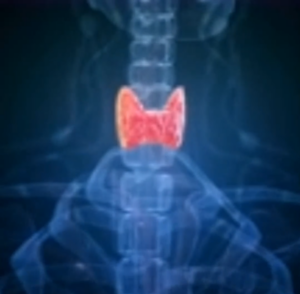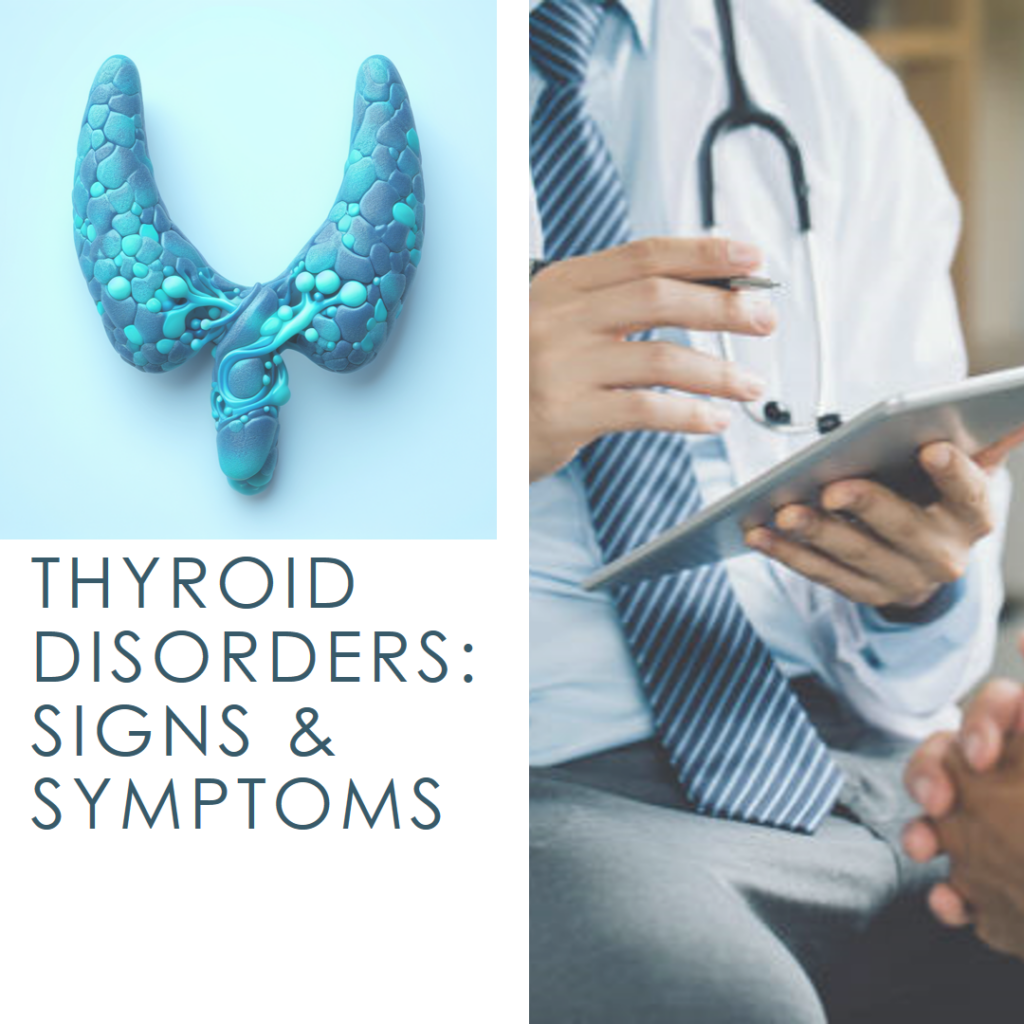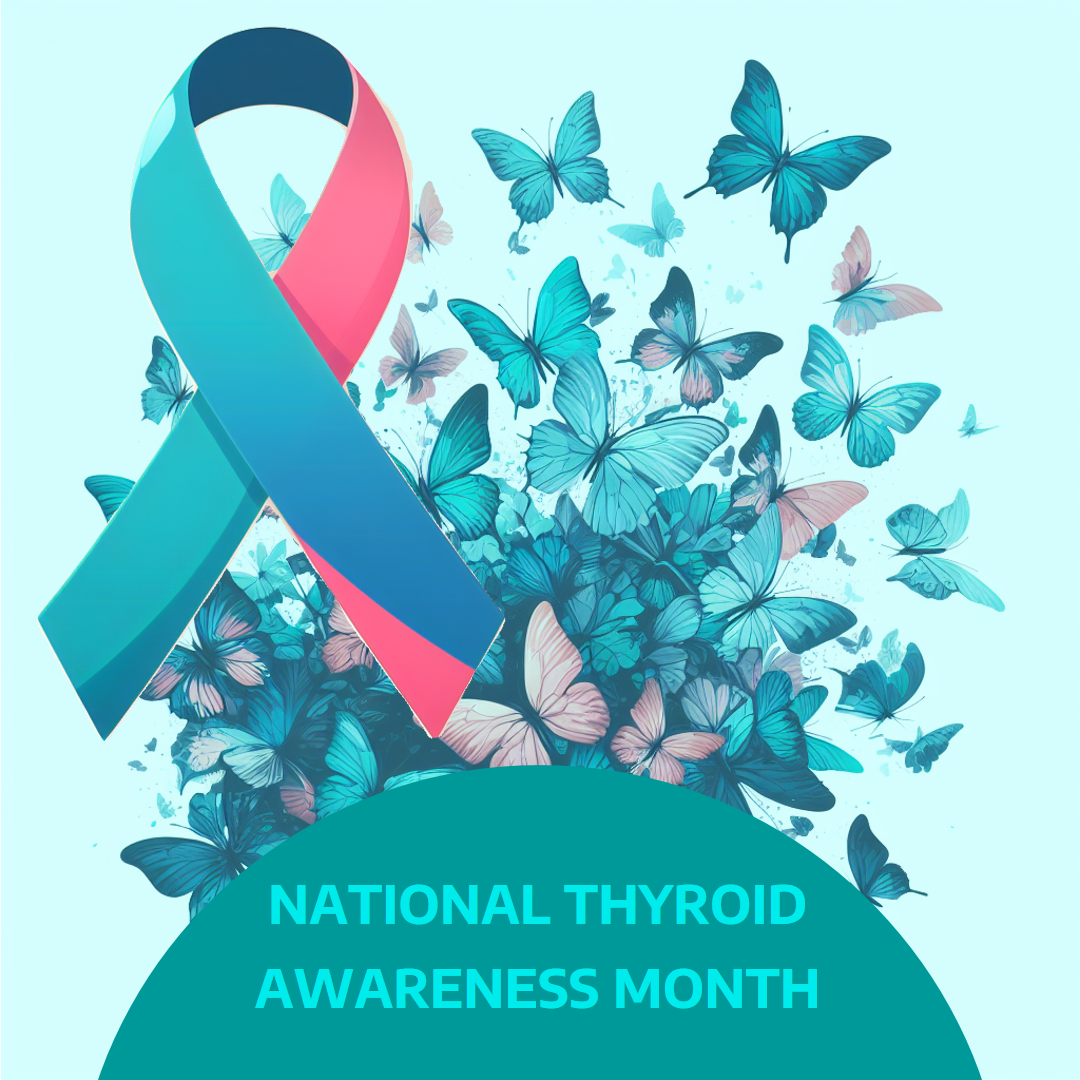As we usher in January, a crisp month marked by fresh resolutions and crisp winter air, we also turn our attention to National Thyroid Awareness Month. This month-long campaign, established in 1992 by the American Thyroid Association, aims to shed light on the often-misunderstood world of thyroid disorders. Today we address some common questions people have on thyroid disease.
What is the Thyroid and What Does it Do?

Tucked away in the front of your neck lies the thyroid gland. This small butterfly-shaped organ influences nearly every aspect of your metabolism, from heart rate and energy levels to mood and body temperature. The thyroid produces two essential hormones: thyroxine (T4) and triiodothyronine (T3). These hormones act like tiny messengers, communicating with every cell and organ in your body, regulating everything from how your body burns calories to how your brain functions.
What is thyroid disease?
Thyroid disease is a group of medical conditions that affect your thyroid gland and prevents your thyroid from making and/or releasing the right amount of hormones. Thyroid issues manifest in two main forms:
Hypothyroidism: When the thyroid gland underproduces hormones, leading to fatigue, weight gain, sensitivity to cold, and depression.
Hyperthyroidism: When the thyroid gland overproduces hormones, causing anxiety, weight loss, tremors, and rapid heartbeat.
How common is thyroid disease?
Thyroid disease affects individuals of all ages, genders, and ethnicities. In the United States alone, an estimated 20 million people have some form of thyroid disease, often going undiagnosed. Women are five to eight times more likely to be affected than men. This translates to roughly one in eight women developing a thyroid disorder at some point in their lives. Hypothyroidism is 7-8 times more common than hyperthyroidism.
What are the symptoms of thyroid disease?

The symptoms of thyroid disease can be subtle and vary depending on the type and severity. However, some common red flags include:
Hypothyroidism:
- Fatigue and low energy
- Weight gain or difficulty losing weight
- Sensitivity to cold
- Dry skin and hair
- Muscle weakness and cramps
- Irregular or heavy periods
- Depression and anxiety
- Poor concentration or memory problems
- Puffiness in the face
Hyperthyroidism:
- Unintentional weight loss
- Anxiety and irritability
- Increased heart rate and palpitations
- Tremors
- Sweating and heat intolerance
- Difficulty sleeping
- Irregular or missed periods
Goiter:

- Difficulty swallowing
- Difficulty breathing with exertion
- Cough
- Hoarseness
- Snoring
- A visible lump or swelling in the neck
If you are experiencing any of these symptoms, it is important to consult with your healthcare provider for proper diagnosis and treatment.
How is thyroid disease diagnosed?
If you suspect you might have a thyroid problem, don’t hesitate to consult your doctor. A simple blood test can measure your thyroid hormone levels and diagnose thyroid disease effectively. Your doctor may also order additional tests, like an ultrasound, to assess the thyroid gland’s structure.
What are the treatment options for thyroid disease?
Fortunately, thyroid disease is highly manageable. Hypothyroidism is typically managed with synthetic thyroid hormone replacement medication. For hyperthyroidism, various options exist, including medication, radioactive iodine therapy, or surgery, depending on the severity and cause of the condition. Your healthcare provider will help guide you toward the best option based on your specific condition.
How can thyroid disease be prevented?
While certain risk factors, like family history, are beyond our control, we can adopt healthy habits to support thyroid health:
- Maintain a balanced diet: A balanced diet rich in iodine, along with essential vitamins and minerals, supports optimal thyroid function. Include iodine-rich foods like seafood, dairy, and eggs. It’s important to note that certain foods and supplements can interfere with thyroid medication absorption or function. Always consult your doctor before making significant dietary changes or taking new supplements, especially if you have thyroid disease.
- Manage stress: Chronic stress can disrupt thyroid function. Practice relaxation techniques like yoga, meditation, or deep breathing to manage stress effectively.
- Get regular exercise: Physical activity helps regulate hormones and boosts overall well-being.
- Maintain a healthy weight: Obesity is a risk factor for both hypothyroidism and hyperthyroidism.
- Regular checkups: Schedule regular checkups with your doctor to monitor your thyroid function, especially if you have risk factors like family history, autoimmune conditions, or previous radiation exposure.
National Thyroid Awareness Month is not just about statistics and symptoms; it’s about empowering individuals to take charge of their health By understanding the basics, recognizing the symptoms, and seeking appropriate medical care, you can effectively manage a thyroid condition and live a healthy, fulfilling life.


